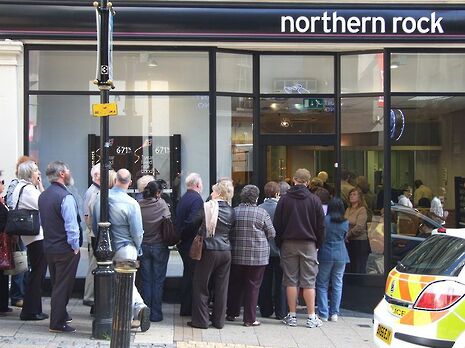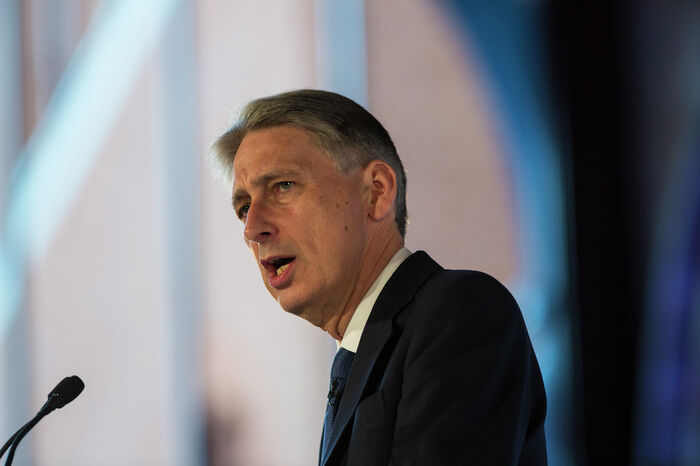Theresa May’s lavish praising of capitalism is misguided
The free market is deservedly losing popularity. The prime minister is wrong to wildly praise it.

When, last week at the Bank of England, Theresa May came out singing the praises of the free market and highlighting the supposed virtues of capitalism, it again showed how politicians from Britain’s establishment continue to fail to learn from the mistakes of the past. Although Santayaha’s infamous quote is overused, it seems wholly appropriate in this case; those who “forget the past” are indeed “condemned to repeat it”.
Capitalism has in effect come to resemble a Class A drug; whilst the short-term effects may be satisfying to the user, the long-term consequences are detrimental. Over the past century in Great Britain, capitalism has repeatedly resulted in depressions, financial crises and has produced a situation where, as of June this year, 4.6 million people in country live in what is known as ‘persistent poverty’, according to The Office of National Statistics.
“To idolise the free market, as May did in her most recent speech, is foolish, and potentially dangerous”
May is wrong to endorse the free market so openly and so carelessly, and has proven that the Conservative Party has learnt nothing from the failure of capitalism during the 2007/8 financial crisis, the effects of which are still being felt today. How can she possibly argue that the free market is “the only sustainable means of increasing the living standards of everyone in a country”, when the number of three-day emergency food supplies given by Trussell Trust foodbanks has risen from just under 29,000 to almost 1.2 million between 2008 and 2017? It is perhaps unsurprising that Jeremy Corbyn, with his brand of socialism, is beginning to look very much like a prime minister in waiting.
May’s speech marked a departure from her recent stances on the free market and, more generally, capitalism’s cultural hegemony in Britain. Upon assuming the office of prime minister, May insisted that she was not prepared to embrace the status quo, an unregulated market that had produced, in her words, a “burning injustice” in Great Britain. The Conservative Party’s 2017 election manifesto reinforced this, by stating: “We do not believe in untrammelled free markets.” It seemed, for a while at least, that May was embracing the so-called ‘Red Toryism’ of her (now former) advisor Nick Timothy.
Currently, the most pressing issue facing May is that of trade in a post-Brexit world. To strike good trade deals, she needs to portray Britain as open and outward looking, and one of the easiest way to do this is to promote the free market. Of course, capitalism has its merits. Arguably, Britain’s consistent promotion of economic freedom has led to the development of a strong, democratic political system. Also, as capitalism took hold in the nineteenth and twentieth centuries, there was an undisputed correlation with the dramatic rise in living standards seen over the past 100 years.
But to idolise the free market, as May did in her most recent speech, is foolish, and potentially dangerous. Capitalism, at least in the form that we have understood for the past century, is not sustainable. Although set in the United States, the 2015 film The Big Short highlights this problem rather well. The film itself focuses on the collapse of the US housing market which spurred the 2007/2008 financial crisis, but reflects on situations like those that Britain experienced at the time. As the big banks were bailed out because of their greed and ultimate failure, ordinary British people were subjected to a ruthless programme of austerity, begun by the coalition in 2010, and which lasts to this day. Whilst public sector employees saw wages frozen, and vital public services were cut, the banks were able to keep going, and continue to consistently pay directors seven figure bonuses. This is the legacy of the free market that May wants to embrace.
Or does she? Returning to May’s initial speech as prime minister, it struck many as genuine. Although a hard-liner in the Home Office, she has always been a moderate on other issues, and belongs firmly in the ‘one-nation’ camp within the Conservative Party. But as the Brexit negotiations stall, and as it remains unclear how effective future trade deals will be for Britain, May understands that she needs to promote the country. Herself and her advisors see the best way of doing this to be through relentless and unwavering support for the free market, even if it is not strictly what the prime minister believes. But either way, she is wrong to blatantly ignore the plethora of problems capitalism produces, just for the sake of national advertisement
 News / Eight Cambridge researchers awarded €17m in ERC research grants27 December 2025
News / Eight Cambridge researchers awarded €17m in ERC research grants27 December 2025 News / Downing investigates ‘mysterious’ underground burial vault 29 December 2025
News / Downing investigates ‘mysterious’ underground burial vault 29 December 2025 Lifestyle / Ask Auntie Alice29 December 2025
Lifestyle / Ask Auntie Alice29 December 2025 Sport / Hard work, heartbreak and hope: international gymnast Maddie Marshall’s journey 29 December 2025
Sport / Hard work, heartbreak and hope: international gymnast Maddie Marshall’s journey 29 December 2025 Interviews / Meet Juan Michel, Cambridge’s multilingual musician29 December 2025
Interviews / Meet Juan Michel, Cambridge’s multilingual musician29 December 2025










